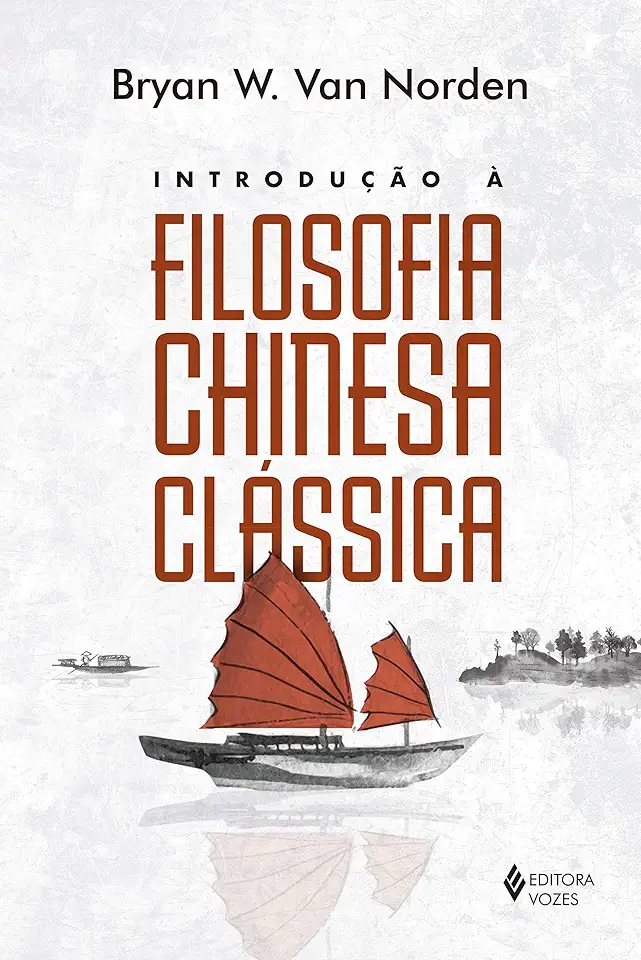
An Introduction to Classical Chinese Philosophy - VAN NORDEN, BRYAN W.
An Introduction to Classical Chinese Philosophy by Bryan W. Van Norden
A Comprehensive Exploration of Ancient Chinese Thought
Bryan W. Van Norden's "An Introduction to Classical Chinese Philosophy" is a comprehensive and engaging exploration of the rich philosophical traditions of ancient China. This book offers a thorough examination of the major schools of thought, key philosophers, and fundamental concepts that shaped Chinese philosophy from the pre-Qin period to the end of the imperial era.
Key Features:
Comprehensive Coverage: Van Norden provides a comprehensive overview of classical Chinese philosophy, covering a wide range of topics, including metaphysics, epistemology, ethics, political philosophy, and aesthetics.
Clear and Accessible: The book is written in a clear and accessible style, making it suitable for both students and general readers interested in Chinese philosophy.
Historical Context: Van Norden places the philosophical ideas within their historical context, providing insights into the social, political, and cultural factors that influenced the development of Chinese thought.
Engaging Narratives: The book presents the philosophical ideas in an engaging and narrative style, making it an enjoyable read for anyone interested in the history of ideas.
Major Schools of Thought:
Confucianism:
Van Norden explores the core principles of Confucianism, emphasizing the importance of ritual, social harmony, and the cultivation of virtue. He discusses the teachings of Confucius, Mencius, and Xunzi, highlighting their contributions to Chinese ethical and political thought.
Daoism:
The book delves into the profound teachings of Daoism, focusing on the concepts of wu wei (non-action), spontaneity, and the pursuit of harmony with the natural order. Van Norden examines the works of Laozi, Zhuangzi, and other Daoist philosophers.
Mohism:
Van Norden sheds light on the lesser-known school of Mohism, founded by Mozi. He explores Mohist ideas on universal love, impartial caring, and the rejection of fatalism, providing a unique perspective on ancient Chinese philosophy.
Legalism:
The book examines the principles of Legalism, emphasizing the importance of law, order, and strict punishments in maintaining a stable society. Van Norden discusses the contributions of Shang Yang and Han Feizi, influential Legalist thinkers.
Key Philosophers:
Confucius:
Van Norden presents Confucius as a pivotal figure in Chinese philosophy, highlighting his teachings on virtue, ritual, and the importance of social harmony. He explores Confucius's influence on subsequent generations of Chinese thinkers.
Laozi:
The book delves into the enigmatic teachings of Laozi, the founder of Daoism. Van Norden examines Laozi's concept of the Dao, the natural order of the universe, and its significance in human life.
Zhuangzi:
Van Norden explores the profound insights of Zhuangzi, a prominent Daoist philosopher. He discusses Zhuangzi's ideas on the relativity of knowledge, the limitations of language, and the pursuit of spiritual freedom.
Mozi:
The book introduces Mozi, the founder of Mohism, and his unique ethical and political theories. Van Norden highlights Mozi's emphasis on universal love, impartial caring, and the rejection of fatalism.
Fundamental Concepts:
The Mandate of Heaven:
Van Norden explains the concept of the Mandate of Heaven, a crucial idea in Chinese political philosophy. He explores how this concept influenced the legitimacy of rulers and the dynastic cycles in ancient China.
Yin and Yang:
The book examines the fundamental concept of yin and yang, representing the opposing forces of nature and their harmonious balance. Van Norden discusses the significance of yin and yang in Chinese philosophy, cosmology, and medicine.
The Five Elements:
Van Norden explores the theory of the Five Elements (wu xing), a foundational concept in Chinese thought. He explains how the Five Elements were used to understand natural phenomena, human behavior, and the cycles of change.
Conclusion:
"An Introduction to Classical Chinese Philosophy" by Bryan W. Van Norden is an essential resource for anyone interested in the rich intellectual heritage of ancient China. Through its comprehensive coverage, clear explanations, and engaging narratives, this book provides a profound understanding of the major schools of thought, key philosophers, and fundamental concepts that shaped Chinese philosophy. It is a must-read for students, scholars, and anyone seeking to broaden their knowledge of the history of ideas.
Enjoyed the summary? Discover all the details and take your reading to the next level — [click here to view the book on Amazon!]